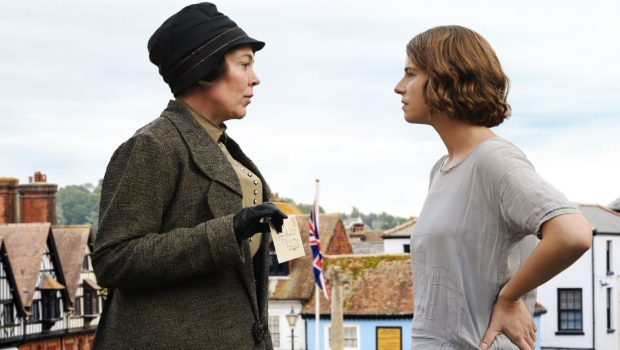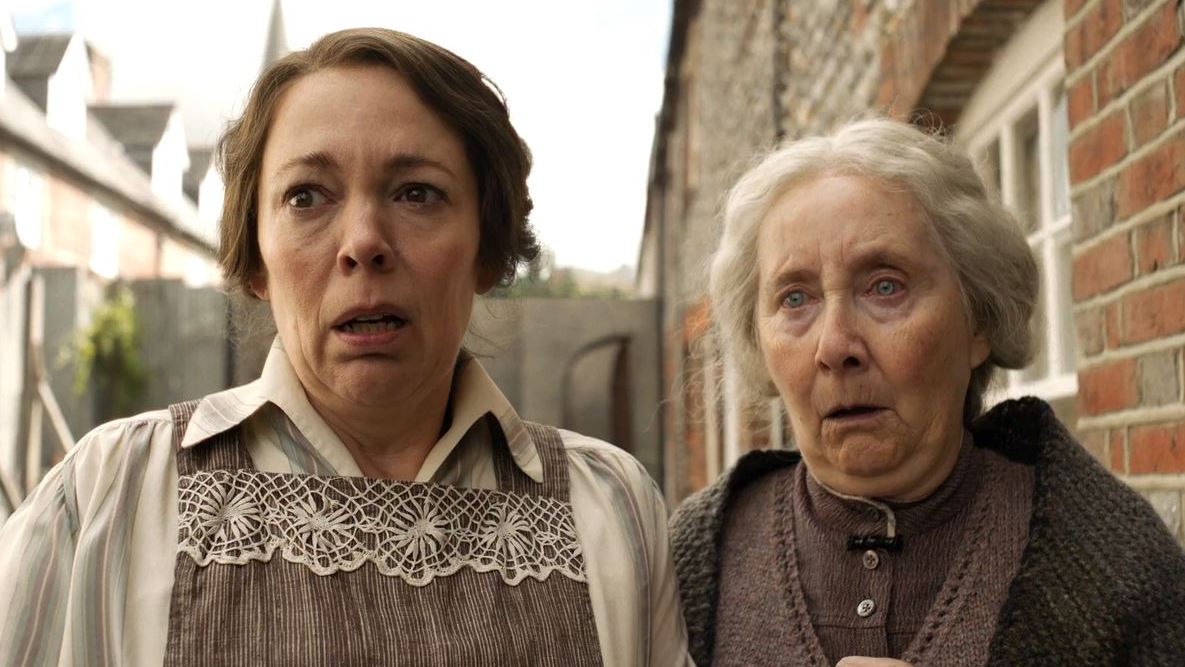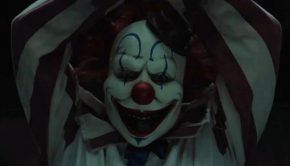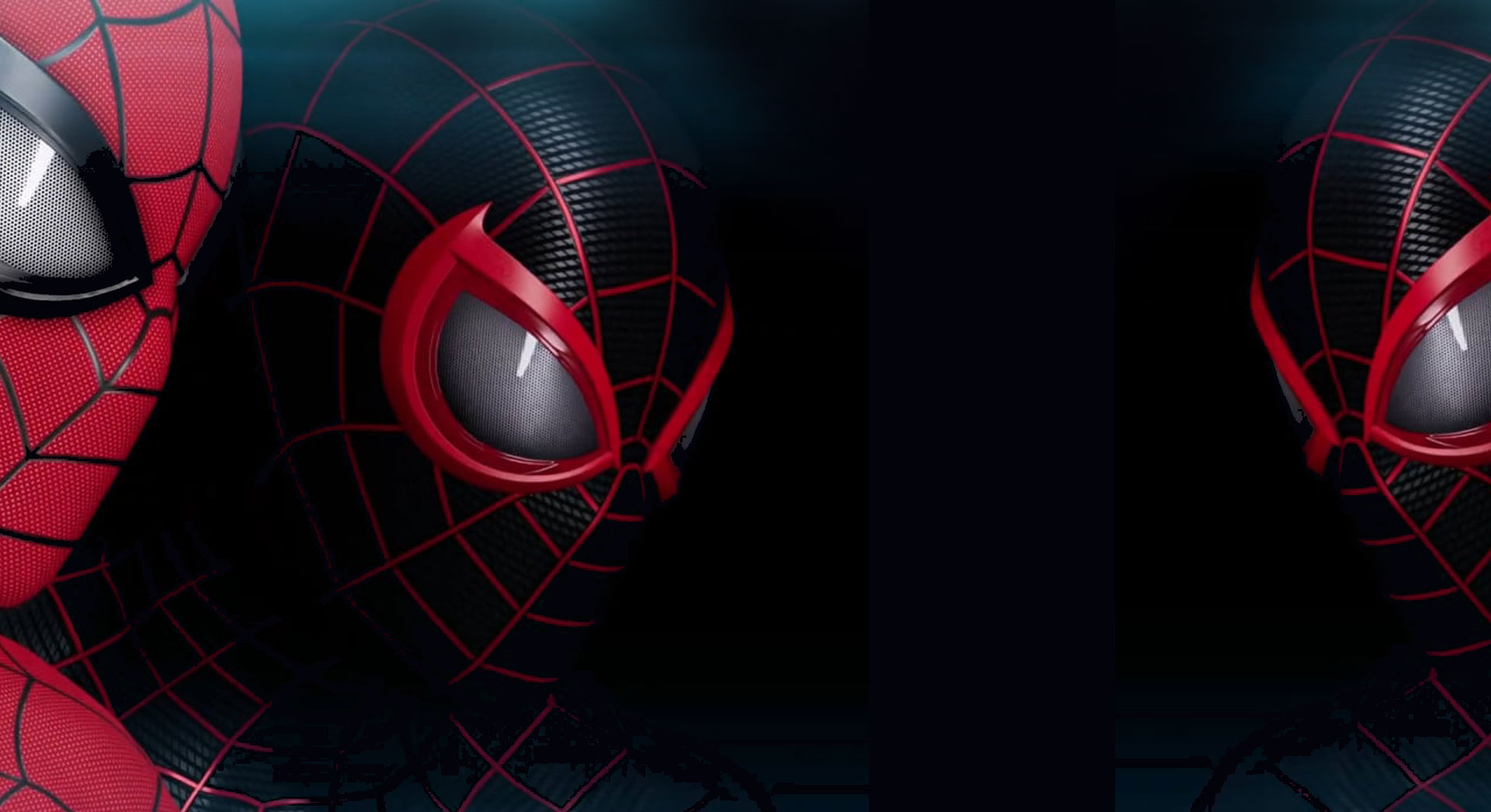Wicked Little Letters – Film Review
Reviewed by Harris Dang on 30th of March 2024
Studio Canal presents a film by Thea Sharrock
Produced by Graham Broadbent, Peter Czernin, Ed Sinclair, Olivia Colman, and Jo Wallett
Starring Olivia Colman, Jessie Buckley, Anjana Vasan, Timothy Spall, Joanna Scanlan, Gemma Jones, Malachi Kirby, Lolly Adefope, Eileen Atkins, High Skinner, Paul Chahidi, and Alisha Weir
Running Time: 100 minutes
Rating: M
Release Date: the 21st of March 2024
Set in 1920s England, Wicked Little Letters tells the story of two neighbourly(?) women, the devout Christian spinster Edith Swan (Olivia Colman) and the acerbic single mother Rose Gooding (Jessie Buckley). The neighbours come to intense blows after Swan accuses Gooding of sending her letters filled with poisonous invective that would shock the entire nation. While the evidence may point to Gooding as the culprit, police officer Gladys Moss (Anjana Vasan) suspects foul play. She vows to find the real culprit, prove Gooding’s innocence, and show her mettle in the male-dominated police force.
The film’s narrative is based on a true story, which implies an interesting conceit as to how it would be approached if adapted into a film. The very idea of coarse language causing a stir is itself absurd. However, the consequences and the time in which the narrative is set can be very grave indeed. The tone shifts from profane comedy to sincere drama are challenging for any filmmaker to face.
The director of Wicked Little Letters is Thea Sharrock, who is best known for her work in theatre and her hit film debut Me Before You (2016). Will she be able to apply an assured hand in telling the story to its fullest potential? Sharrock and screenwriter Jonny Sweet (best known as a comedian) manage to create an enjoyably frothy piece of work that works well with its dark, acerbic comedy, its amiable cast, and its crowd-pleasing themes of triumphing over adversity (from the patriarchy, of course). However, there are nagging flaws that keep the film from reaching true greatness.
One of the reasons the film fails to reach that level is that the acerbic dialogue (wonderfully inventive in the first half of the film) quickly grows repetitive. It slow the pacing and creates tedium in the storytelling, especially when the stakes need to be escalated. Speaking of dramatic stakes, another reason is how Sharrock and Sweet attempt to shift tones in the story from comedy to drama. The storytelling lacks seamlessness, which means the film causes emotional whiplash.
Lastly, there is little mystery in the narrative about the culprit’s identity. Even with a vast number of characters to choose from, almost everyone is shown to be too comical and pantomime to be guilty. Because if that were the case, the dramatic stakes would feel phony. The only choices left are the ones seen to be more sincere, leading to a lack of mystery in the film. Thankfully, it only covers the first half of the story. The rest involves trying to prove Gooding’s innocence.
Even with all the negatives, Sharrock and Sweet should be commended for making the film’s dramatic stakes work at all. Despite jarring tone shifts, the integration of actual stakes borne from background details, including the post-war setting and the highly topical themes of female discrimination, are all conveyed smoothly and in crowd-pleasing ways that care little for subtlety. Considering the film’s audience and the blatant language, the in-your-face approach is much more suitable here in a commercial perspective.
The cast certainly lend the film a lot of humour, credibility, and heart. Colman manages to convey the multiple facets of Swan convincingly and smoothly, making her relatable and human. Through reticence, pride, deviousness, and anger, Colman lends an effective emotional dexterity to the role. Buckley is enjoyably brash, but she never overdoes the attitude to the point of being cartoonish or being unsympathetic. It is easy for the audience to root for her when she undertakes the trials and tribulations of being wrongfully accused.
As for the supporting cast, Timothy Spall is both believably imposing and grumpy as Swan’s father while Gemma Jones is engagingly moody as Swan’s mother. Anjana Vasan is headstrong and a capable foil for all the comedic antics that happen around her. In smaller roles, Alisha Weir, Malachi Kirby, and Hugh Skinner all hit their mark. But the standout is Joanna Scanlan, who takes her one-note comic character and squeezes out all the comedic potential out of it. Her scene involving her character’s insatiable hunger and an egg is laugh-out-loud funny.
Overall, Wicked Little Letters is a shrewd and profane little crowd-pleaser that will delight those who are not afraid of a little sharp bitterness in their comedies. There is nothing wrong with a little coarse language, right? No shit.
Summary: A shrewd and profane little crowd-pleaser that will delight those who are not afraid of a little sharp bitterness in their comedies.









